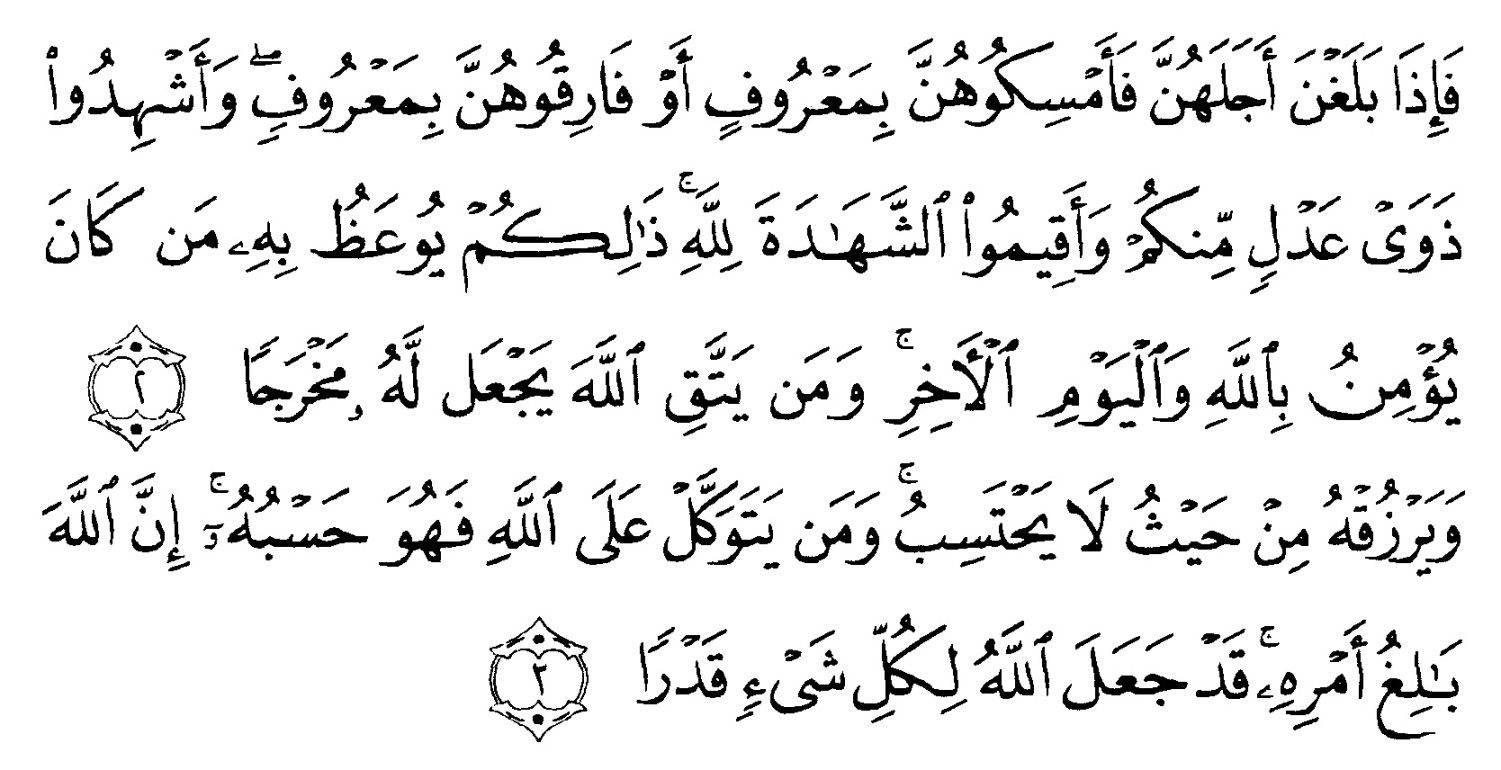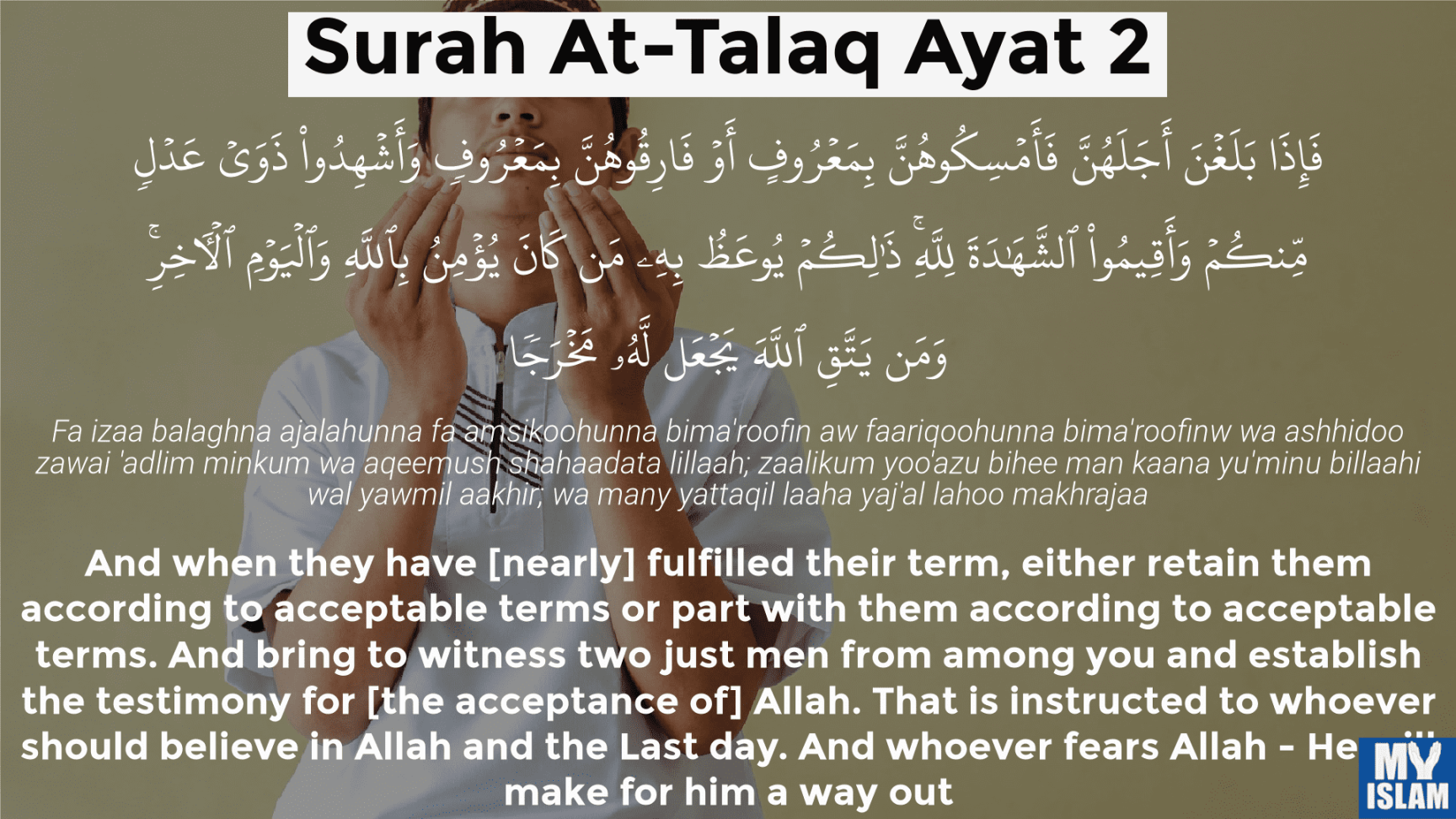
In the Islamic faith, marriage is considered a sacred bond between two individuals, but there are provisions for divorce in cases where the relationship cannot be salvaged. One of the methods of divorce in Islam is known as at talaq, which translates to repudiation in English. This practice is outlined in the Quran and holds specific rules and regulations that must be followed for it to be considered valid under Islamic law.

At talaq 2-3 refers to the process of divorce in Islam where the husband pronounces divorce to his wife three times. This practice is based on the teachings of the Quran and the traditions of Prophet Muhammad. In this method, the husband has the right to divorce his wife by saying the word talaq three times in succession.
There are certain rules and regulations that must be followed for at talaq 2-3 to be considered valid in Islam. Firstly, the husband must be of sound mind and not under any influence of alcohol or drugs when pronouncing divorce. Secondly, the divorce must be done in a state of purity, meaning that the husband cannot be in a state of ritual impurity when pronouncing divorce. Thirdly, there must be witnesses present when the divorce is pronounced to ensure its validity.
At talaq 2-3 has been a subject of controversy in recent years, with many Muslim scholars and activists calling for reforms to the practice. Critics argue that the practice is often abused by husbands who use it as a tool to control and manipulate their wives. In some cases, women have been left destitute and without any means of support after a husband pronounces divorce multiple times in quick succession.
In Islam, divorce is considered a last resort and should only be sought after all other avenues of reconciliation have been exhausted. It is important for couples to seek counseling and mediation before resorting to divorce, as this can often help resolve issues and save the marriage. Islamic teachings emphasize the importance of preserving the family unit and avoiding divorce whenever possible.
In conclusion, at talaq 2-3 is a practice of divorce in Islam that carries specific rules and regulations. While it is a valid method of divorce according to Islamic law, it is important for couples to approach the process with caution and seek counseling and mediation before making any final decisions. By understanding the principles of at talaq 2-3 and the importance of preserving the family unit, couples can navigate the challenges of marriage and divorce in a way that is respectful and mindful of Islamic teachings.
1. Can a wife also initiate divorce in Islam?
In Islam, wives also have the right to initiate divorce through a process known as khula. This allows the wife to seek a divorce from her husband under certain conditions.
2. What are the conditions for a valid divorce in Islam?
The conditions for a valid divorce in Islam include the husband being of sound mind, in a state of purity, and having witnesses present when pronouncing divorce.
3. Is it permissible for a husband to revoke divorce after pronouncing it?
Yes, in Islam, there is a concept known as talaq raj’ee, where the husband has the right to revoke the divorce within a certain period of time after pronouncing it.
4. How does Islamic law handle issues of custody and financial support after divorce?
Islamic law provides guidelines for issues of custody and financial support after divorce, ensuring that both parties are treated fairly and justly.
5. What is the role of the Islamic court in divorce proceedings?
In cases where divorce cannot be resolved amicably between the parties, the Islamic court may intervene to ensure that the divorce is conducted according to Islamic law and that both parties’ rights are protected.